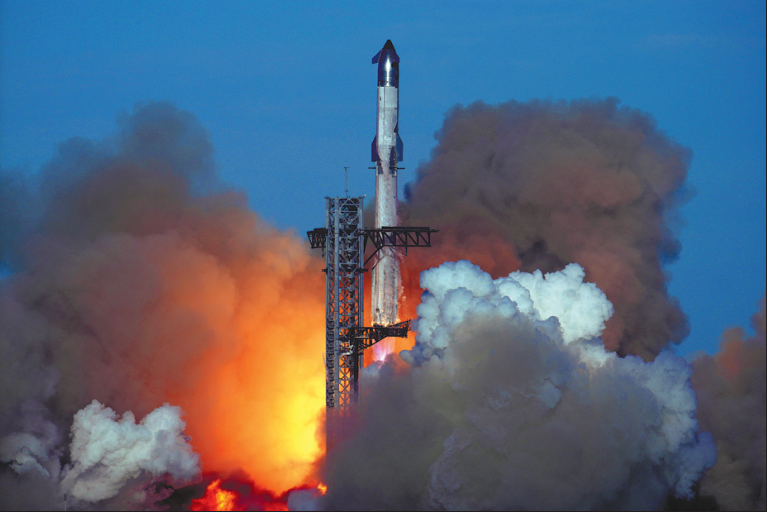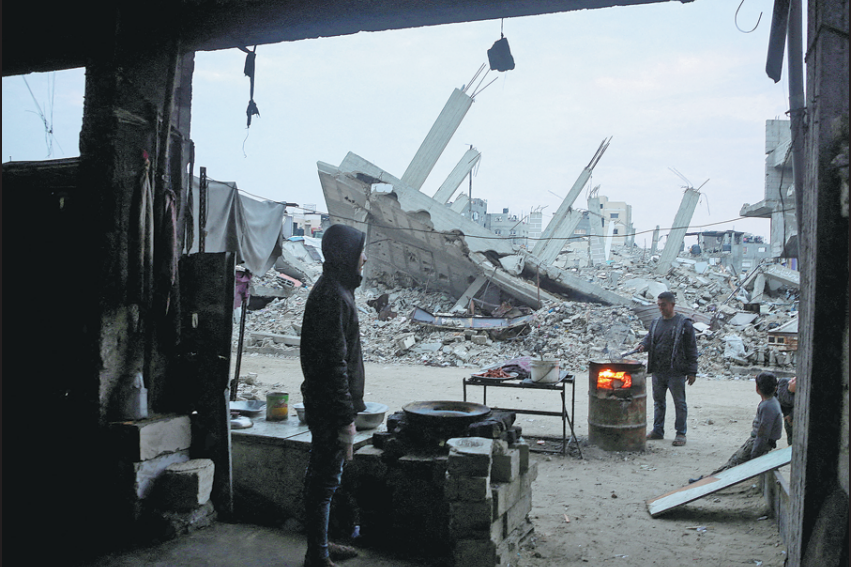New challenges mark COVID anniversary


The world has just passed the grim second anniversary of the emergence of COVID-19, with governments imposing new measures to control the spread of the new Omicron variant of the disease.
The World Health Organization reported that by the first week of December, the variant had spread to 57 countries after being first identified in South Africa the previous month.
In the past two years, some 270 million people worldwide were identified as having the COVID-19 virus, and more than 5 million have died. New cases of all strains continue to emerge at a rate of more than 600,000 a day.
These sobering statistics were barely imaginable two years ago, or at least not by the authorities in many countries. In retrospect, many were slow to react to the threat, somehow imagining the pandemic would not reach them. But the pandemic rapidly became a problem in the United States and Europe.
Now, the emergence of the rapidly transmissible Omicron is a reminder that the pandemic has yet to run its course and the future may be more about living with the disease than totally eradicating it.

A more positive landmark has been the anniversary of the earliest vaccines administered to combat the disease. High levels of global cooperation and data-sharing meant that vaccines became available within just 12 months of the emergence of the disease.
The downside of that breakthrough has been that vaccines have been most widely available in rich countries, with the poorer ones struggling to catch up. Officials in the developed world frequently parrot the truism that "no one is safe until everyone is safe "while, at the same time, hoarding vast reserves of vaccines for their own citizens.
The United Nations-backed COVAX vaccine-sharing program has yet to meet even half its commitment to deliver 2 billion doses to the poorer nations by the end of this year.
The threat from Omicron has prompted richer countries to provide a third booster dose for their citizens, while millions in the developing world are still waiting for their first inoculation.
As the new variant emerged, China pledged to donate a billion vaccine doses to Africa, where only one in 20 had received both vaccine doses by mid-November. At the same time, WHO chief Tedros Ghebreyesus warned that Omicron showed "COVID-19 is not done with us".
The latest indication that the two-year pandemic is far from over raises the question of where the world will be 12 months from now. Will countries around the world be marking a third grim anniversary, will COVID-19 have been eliminated, or will we have learned to adapt to and live with the disease?
China's top epidemiologist, Zhong Nanshan, noted this month that "the pandemic has now become a new normal "that had to be handled in a systemic, scientific and standardized way.
Zhong, also a leading expert on respiratory disease, predicted that high levels of vaccination in China, where more than 1 billion people are already fully vaccinated, could lead the country to reach herd immunity.
Herd immunity implies that a large proportion of the population has become immune to the disease either through previous infection or vaccination, reducing the opportunity of it spreading to others.
The emergence of Omicron raises some questions about this tentatively optimistic scenario. Initial data suggests that the strain may be less virulent than its predecessors. But it also suggests it may be easier to catch, even for those who have received a second dose of vaccine.
The new variant has prompted new domestic and travel restrictions around the world, including in those richer countries where people had been promised that wide-scale vaccination would be the golden bullet that set them free.
It looks as if such measures will persist, or even be toughened, for some time yet. That will add to the economic, social and mental health burdens that COVID-19 has already inflicted on many parts of the world.
With vaccinations still the strongest weapon in the public health armory, some governments in Europe are in the process of mandating inoculation, a situation most Europeans would have considered unthinkable at the start of the emergency.
There has been some backlash against restrictions in Europe and even more so in the US, where even mask-wearing has become a political issue.
Two years into COVID-19, it is more vital than ever for the public and authorities around the world to keep their nerve. Science has responded swiftly and effectively to the COVID-19 menace, even if some governments have been slower to do so.
The hope now is that when the world marks the next anniversary in a year, the worst aspects of the pandemic in terms of fatal disease and restricted lives will at last have started to turn into a fading memory.
The author is a senior media consultant for China Daily UK. The views do not necessarily reflect those of China Daily.
































